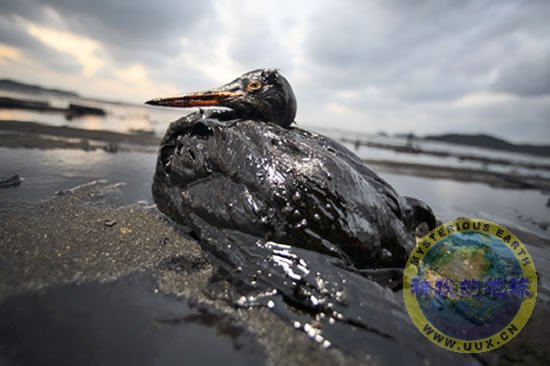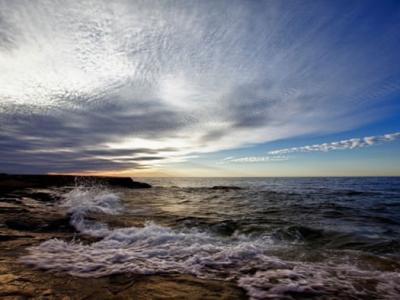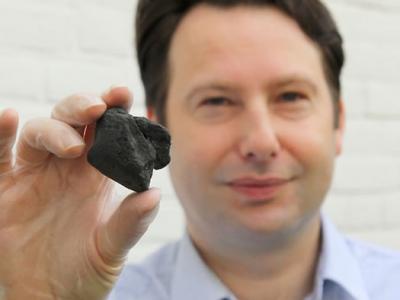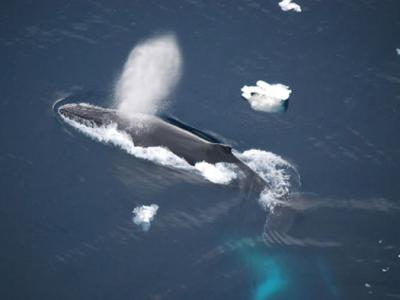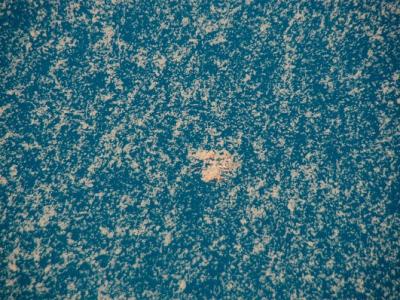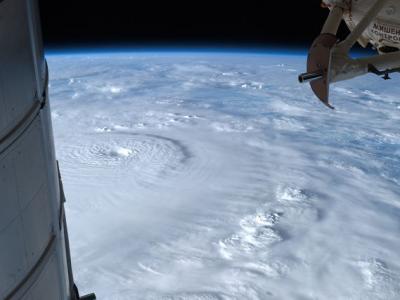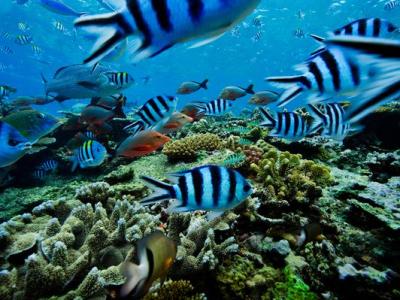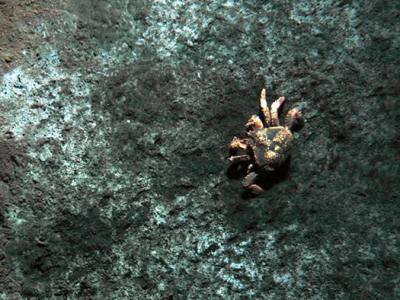Oil Threatens South Korean Seafood, Birds, Tourism
A bird is covered in fuel oil from a spill last Friday, December 7, 2007, near Mallipo, South Korea.
The country's largest oil spill reached part of its scenic and environmentally sensitive western shore Saturday.
Volunteers and authorities have been struggling to clean up the mess.
Photograph from the Korean Federation for Environmental Movement/AP/HO
Hyung-jin Kim in Shinduri Beach, South Korea
Associated Press
December 10, 2007
For oyster farmer Chung Hwan-hyang, damage from South Korea's worst-ever oil spill hit home.
"My oysters are all dead," the 70-year-old woman said Sunday as she and thousands of others cleaned foul-smelling oil from the local beach. "I cried and cried last night. I don't know what to do."
Some 7,500 volunteers, residents, and members of the military used shovels and buckets in a massive effort to clean up oil that began washing ashore Saturday, blackening beaches along the country's western coast.
About 2.7 million gallons (10.2 million liters) of crude gushed into the ocean Friday when a barge collided with a supertanker carrying more than 260,000 tons of crude oil.
For Chung and other residents of Taean County's Shinduri Beach, nearly 100 miles (160 kilometers) southwest of Seoul, the mood was despair and shock at how the pollution could shatter lives and businesses.
Fish and Birds
The slick has affected at least 181 aquatic farms producing abalone, seaweed, littleneck clams, and sea cucumbers, according to Lee Seung-yop, a Taean County official.
No detailed damage estimates for the area as a whole have been released, though Lee said officials feared it would be substantial.
Ku Bon-chun, chief of a local fishermen's association at Mohang Port, close to Mallipo Beach, said oily waters submerged 32 acres of aquatic farms.
"I feel like my heart is empty," he said. "These fishing farms are all finished."
Mallipo is considered one of South Korea's most scenic areas and serves as an important stopover for migrating mallards, great crested grebes, and others birds.
More than 20 million tourists visit the area each year, providing an economic boost to nearly 64,000 nearby residents, who depend heavily on fishing and seafood farming.
Raw-fish restaurant owner Kim Eung-ku, of Mallipo, was helping with the cleanup but said he feared the situation was hopeless.
"We have no choice but to leave this place," he said. "This ocean is dead."
Tourism
Tourists have been canceling their reservations, said Chun Kwang-ho, who runs a 10-room motel nearby.
"My business is ruined," he said.
Chun said that hundreds—maybe thousands—of seagulls and other birds used to come at this time of year to the beach, where tourists would feed them.
"That really looked splendid," he said. "But you see now there are no seagulls and birds at all. Seagulls don't come here because of this terrible smell."
Chun showed two dead birds coated in dark oil. He said they were mallards.
"I feel so bad and sorry for them," he said.
Cleaning Up
More volunteers aboard 105 ships along South Korea's western coast were trying to clean the sea, plugging the leaks in the tanker, dropping oil fences into the ocean, and using chemicals to break up the slick.
The nation's previous biggest spill, less than half the size of this one, was in 1995.
The South Korean government has stopped short of promising direct aid, saying any compensation would have to be paid by insurance policies covering the two ships and an international fund that covers oil pollution damage.
Prime Minister Han Duck-soo, however, instructed officials to help afflicted fish and seafood farmers receive quick compensation, his office said in a news release. No details were given.
Chung, the oyster farmer, said her damage would amount to $21,800, with the oil slick appearing just as oyster harvesting had begun.
She said her family had no means to restart the 30-year-old business.
"I can't describe how I feel now," she said. "This is what helped me raise my children and educate them.
____
Associated Press writer Kwang-tae Kim in Seoul contributed to this report.
Copyright 2007 Associated Press. All rights reserved. This material may not be published, broadcast, rewritten, or redistributed.
